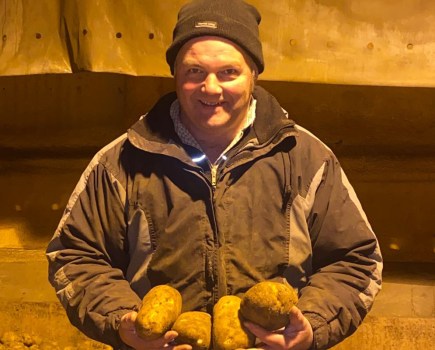By Janine Adamson
Does how we sound impact how we’re perceived? Periodically, the question of equality comes knocking at my door but usually, it’s regarding being female. It’s rarely about my provenance and/or accent, yet this is where I’ve experienced most discrimination.
Firstly, I am proud to be from North Staffordshire (let’s call it Stoke-on-Trent). Albeit not a glamourous location and its reputation is rather poor, but there are significant consequences for those who criticise my realm. And yes, I use my ‘discerning’ eye to always inspect the underside of a tea cup to check which pottery manufactured it.
But with a passion for my city comes a rather distinctive vocal lilt. I freely admit I’ve fallen in and out of love with it over the years (both the city and my voice) – I even took elocution lessons to smooth off the edges and improve my pronunciation of ‘book, cook and look’.
Back then I was training to be a broadcast journalist and my voice was everywhere including being the newsreader for a local radio station. At the same time, regional accents were only just starting to be accepted on mainstream television.
So off I went to a wonderful lady called Lisa who was exceptional and if nothing else, she taught me how to use my diaphragm to deliver lines with punch. It was what you did if you wanted a ‘decent’ job in broadcasting, so they said.
Despite this investment, paid for by working in McDonald’s, there have been numerous incidents where my lack of plumminess has been commented upon, certainly in the earlier years of my career. The odd word or two would catch me out and similar to an abandoned slipper in the vicinity of puppy Ted, I’d find myself swiped.
It almost didn’t matter where I was from specifically, I just wasn’t posh enough to hold a conversation with, or maybe it was assumed I wouldn’t offer anything worth knowing. It’s important to note that by this point in proceedings, I’d abandoned my newsreader aspirations and was working in agricultural marketing.
Having your accent mocked is all fun and games until you realise they’re laughing at you and not with you. And whereas we’ve all been guilty of doing this I’m sure, it can sting, trust me.
I doubt it would have been helped by my age at the time – reverse ageism is a very real thing which I’ve experienced first-hand. Perhaps this has contributed towards my lack of confidence and hiding behind the crusty sandwiches at conferences!
Either way, I’ve since learned to use my accent to my advantage and over the years, forgotten my elocution studies bar the diaphragm flexing. At times I find myself the go-to for an ‘approachable generic Midlands’ voice over whereas gaining the occasional wrinkle has helped abate the ageism problem. I’m a Stokie and I’m proud.
I believe as a sector, we’ve become a little more forgiving when it comes to socioeconomic factors recently, after all, many farmers aren’t as loaded as the public perceive. But I shall stick my neck on the line to say I think we have a lot further to go. Surely it doesn’t matter whether you attended public school, have a genuine double-barreled name, ate hummus as a toddler, live in a house with a name not a number, or not?
A dear friend of mine specialises in widening participation at Harper Adams University which demonstrates educational institutes do view this as a problem. She travels around the country visiting urban schools, delivering activities and encouraging young pupils to consider a rural future. In many cases, further education full stop.
But for those of us later down the line, if you know your onions, want to work hard and are a decent individual, why not make agriculture your thing? Money aside (I’ve always had to pay my own way), I believe much of the problem is having access to the right connections and appropriate networks. That’s certainly been the case for me.
It really shouldn’t matter if your accent reveals your urban provenance, especially if you’re proud of your heritage. Our voice is an integral part of our character, we should all be confident in letting it sing.
This article was taken from the latest issue of CPM. For more articles like this, subscribe here.
Sign up for Crop Production Magazine’s FREE e-newsletter here.




